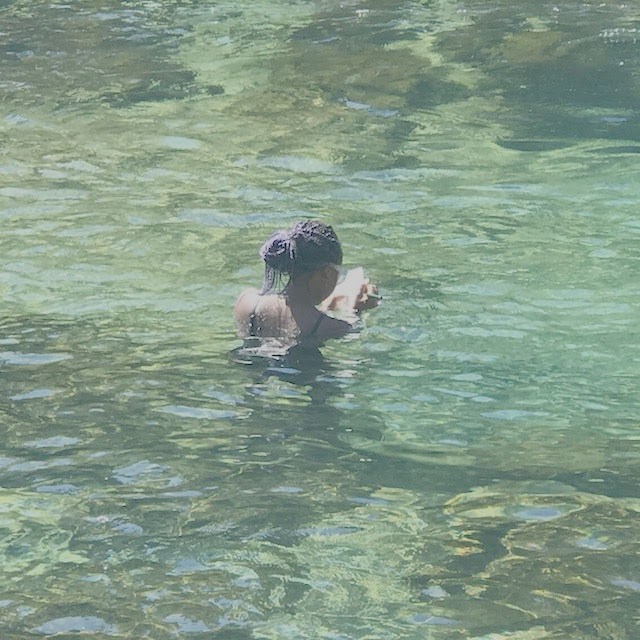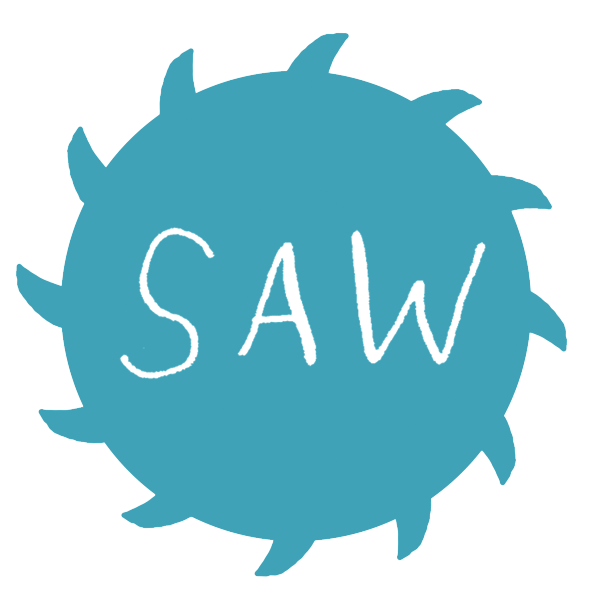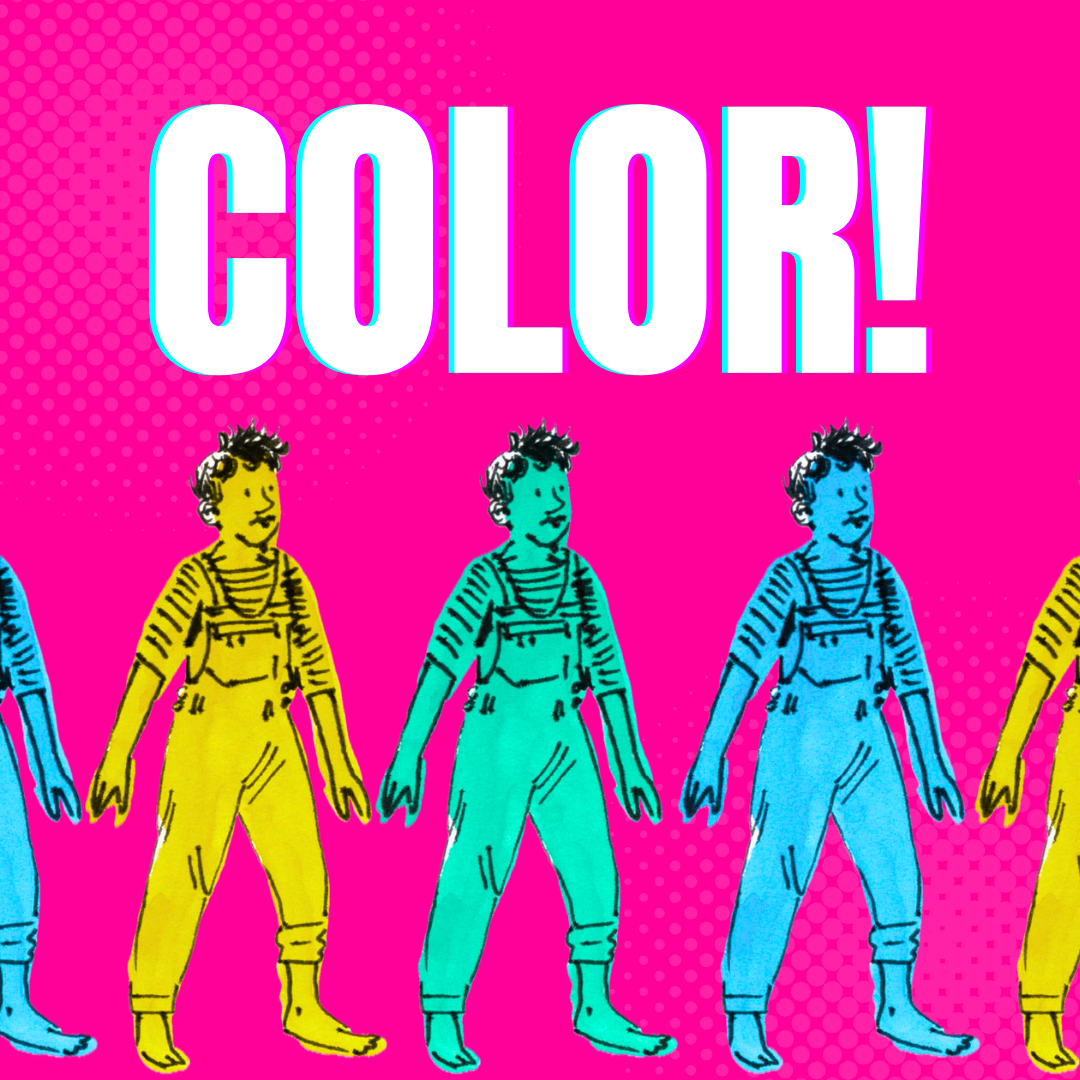
NOTES FROM SAW
Here’s the place to check out everything that’s been going on at SAW including what we're learning, reading and drawing.
SELL THE PIANO: HOW TO MAKE COMICS FOREVER!
Our very last episode of The Terrible Anvil (Season One) was recorded this week! With Tom and Jess together in the same room!
We tried to tie a bow around the business of comics by offering ideas on HOW TO KEEP GOING (FOREVER), AKA making your own sustainable comics practice amidst inner/outer turmoil and also remembering to wash the dishes.
A big takeaway from this episode: CELEBRATE SMALL WINS!
DIALOGUE AND WRITING FOR COMICS
This week we recorded the penultimate episode of THE TERRIBLE ANVIL, this time discussing scripts, dialogue, and writing for comics!
The words we use and how they are arranged on the page can guide readers' understanding of our comics and influence how they feel about a story and its characters. But how do you pick the right words? How much is too much dialogue? How can you make sure readers understand your text the way you intend?
HOW TO DEAL WITH CRITICISM IN COMICS
This week on the Terrible Anvil we talked about CRITICISM!
Criticism and rejection are inevitable parts of the creative process—so how can we make them more bearable?
COLLABORATION IN COMICS
This week we talked all about creative collaboration!
Comics can often be a solitary endeavor, but you'll find lots of ways to collaborate with other people—be it editors, writers, artists, colorists, copy editors, designers, publishers or co-creators!
Collaboration in any art form can be a great way to breathe new life into the creative process. They can be scary or uncomfortable if you're used to having total control over your creative projects, or this shared control might feel liberating.
Either way, there's lots to gain from working with others on a shared project, from morale boosts and accountability systems, to practical knowledge sharing and the creative alchemy of multiple minds coming together.
But how do collaborations happen? How do you make them successful? How can you maximize fun and minimize pain in the process?
There's lots of advice in this episode, but the core of it is to establish clear communication and boundaries and to have a shared goal with your collaborators.
Background Music: How, When, and Why to Draw Backgrounds
This week on The Terrible Anvil, we talked about BACKGROUNDS!
We talked about the link between last week's topic, EXPECTATIONS and backgrounds—what we THINK backgrounds should look like, as well as what readers might expect…
FINDING JOY AND SUSTAINABILITY IN COMICS
This week we got rather philosophical here at the Terrible Anvil podcast!
We tackled lots of big ideas, but circled back again and again to finding joy in the hard parts of comics (and within the confines of capitalist markets).
We also discussed drawing inspiration from the world around us—zooming out can get us out of our heads and give our work room to breathe.
But our power to tell stories comes from within us too!
We go over ways to tap into our own creative energy, even when we've reached a state of burnout. Finding ways to reignite the joy of our creative process can lead us to more sustainable art practices—especially when we're working on dark, heavy topics.
How To Table at Comics Conventions—And Make Friends!
In this episode we talk about some of the most social fun one can have as a cartoonist: TABLING! Read on for tips about navigating comics conventions, zine fairs, and press expos of all seasons and sizes.
Learn about attending conventions to share your work, expand your network, have fun, and see what's out there in the world of comics.
MONETIZING EVERY MOMENT OF WAKING EXISTENCE ON INSTAGRAM (WHAT COULD GO WRONG?)
This week we talked about navigating social media to promote your work and make money as a cartoonist—from networking and building your audience, to avoiding burnout and fielding harsh feedback.
The internet can be a lovely way to connect with friends and family, make new connections, support fellow cartoonists, and publish your comics. There are great benefits to serializing a webcomic or routinely sharing your work.
But social media can also be a source of pressure, discouragement, and creative doubt.
Do you need to move to NYC and gain a million followers on Instagram to be a commercially successful artist? Do you have to work tirelessly on gaming the algorithm to get your work seen? Do you have to monetize your comics at all?
Read on (or listen in) for answers to questions like these and more!
WHO AM I? WHAT AM I DOING??
Your Idea(s) Will Change Over Time
Nail down some thoughts on paper or a napkin. Everything counts. Gather everything together and look at it. What are the napkins telling you that you don't know? Sometimes we project a structure onto something early on that falls away later in service of the narrative. That is normal and good!
Course Lab's latest podcast featuring Tom Hart on "Drawing New Conclusions"
Check out Course Lab's latest podcast featuring Tom Hart on "Drawing New Conclusions." "Many course topics are believed to be “unteachable” online. Tom Hart teaches one of them — cartooning. Not only that, his school operates as a nonprofit. But despite bucking conventional wisdom in both ways, Tom’s school has been comically successful."




















